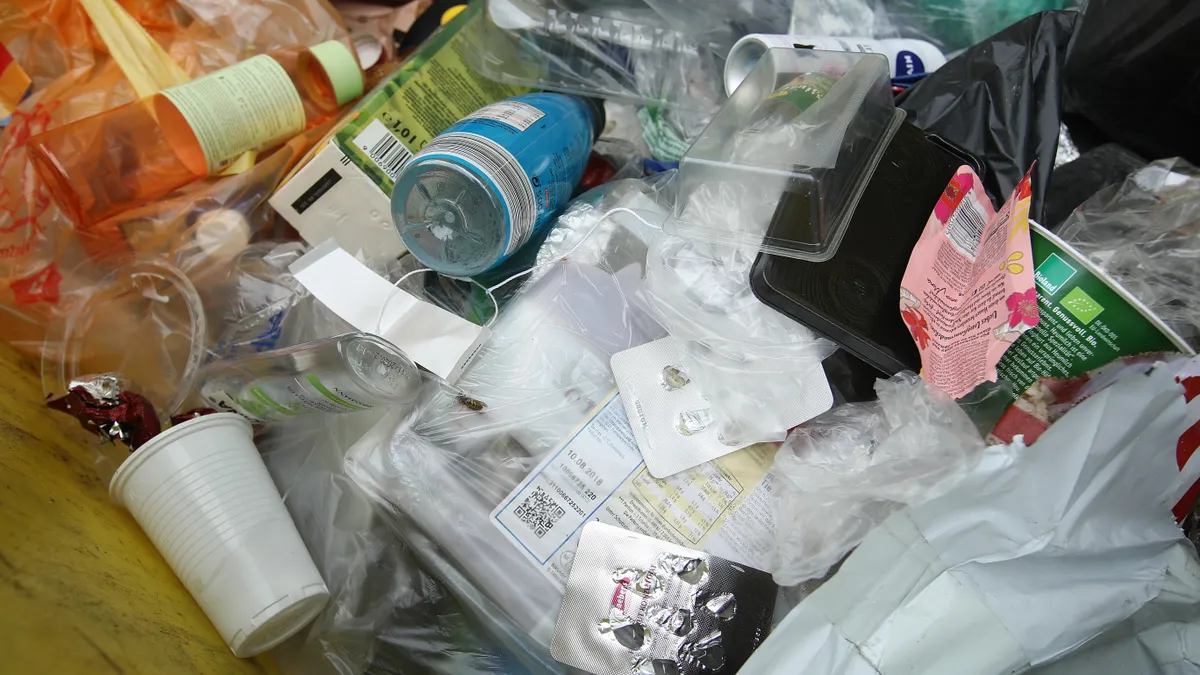A dozen major brands are calling for access to up to 800,000 metric tons of chemically recycled plastics by 2030, they said in a letter Thursday.
Members of the Consumer Goods Forum’s Coalition of Action on Plastic Waste, which include major food and packaging brands, published a letter of intent outlining the need to procure chemically recycled plastics in addition to mechanically recycled materials in order to meet packaging demands. The letter was addressed to industry players such as suppliers and investors, and focused mainly on demands in the European market.
Amcor, Barilla, Colgate Palmolive, Danone, Ferrero, Haleon, Henkel, Mars, McCain Foods, Mondelēz International, PepsiCo and Unilever signed the letter.
The group says chemical recycling, also known as advanced recycling, can be an important way to reduce plastic waste and help the brands meet ambitious recyclability and recycled content goals. Coalition members say their position is guided by principles laid out in the Ellen MacArthur Foundation’s Global Commitment to a New Plastics Economy initiative, which advocates for better global recycling practices and a circular economy approach to packaging that moves away from virgin plastic.
In the letter, the coalition says it supports the “development of credible, safe and environmentally sound chemical recycling infrastructure,” while also continuing to invest in mechanical recycling infrastructure. Any plastics that undergo a chemical recycling process must follow the principles it outlined in an April position paper focusing on pyrolysis-based chemical recycling processes, the coalition said.
That paper advocates for chemical recycling as long as the process does not include material that can be “economically recycled by mechanical recycling in practice and at scale” and says chemically recycled content must be accurately traced. Chemical recycling should be used for plastic production, not for creating fuels or other outputs like bitumen, asphalt and wax, the group added. It also calls for companies to be transparent about chemical recycling claims.
CGF’s announcement comes as major brands are already using chemical recycling processes to try to meet fast-approaching recycled content goals. Mars in 2020 announced it would introduce new pet food bags made from chemically recycled plastic.
Yet environmental groups have long spoken against chemical recycling. Greenpeace USA called the CGF announcement “greenwashing,” saying chemical recycling is not a safe or environmentally sound process. Greenpeace called for the brands to support the U.N.’s Global Plastics Treaty: an international, legally binding treaty to tackle global plastic waste that’s currently in the works.
“At this point, pretty much everyone agrees that plastic pollution is a problem. Unfortunately, corporations are still focusing on approaches that are near the bottom of the waste management hierarchy,” said John Hocevar, Greenpeace USA’s oceans director, in a statement, referencing the U.S. EPA’s ranking of waste management strategies from most to least environmentally preferred.
Other environmentalists call for pausing any new permitting for chemical recycling infrastructure in the U.S. in order to study the potential environmental impacts from the process, particularly on environmental justice communities.











